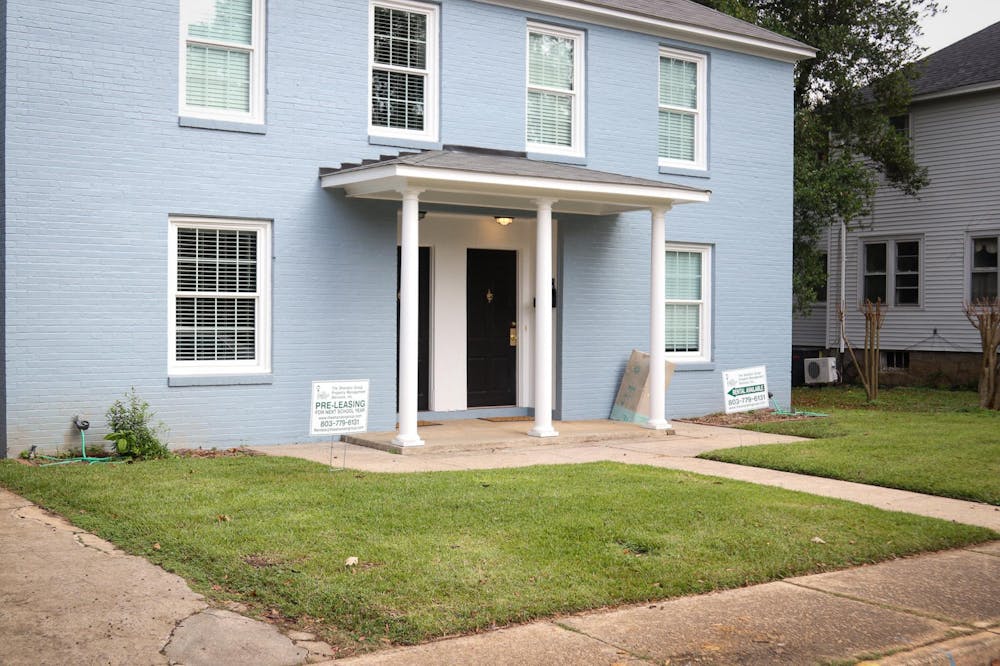Rising student enrollment rates and the need for extra housing cause Columbia residents near Five Points to continuously work to solve emerging housing issues.
Living in a college town means students frequently search for off-campus housing in residential neighborhoods. Although some Columbia residents have recently found the local Five Points cleanup to be beneficial for student life off-campus, student growth rates are causing issues with parking and housing.
The Five Points cleanup was started by a group of residents who strived to improve Columbia in 2019, especially for students. To make it more family-friendly, shops and vendors were put in place of the bars that were taken out as part of the cleanup. Some bars, such as Pavlov's, were closed, while others, like The Bird Dog, required renovations to remain open.
Howard Duvall, a former City Council member, assisted in organizing the Five Points cleanup effort. As a vocal council member, he saidgetting rid of the "bar situation" was an important step toward helping the community.

“The major change is that reducing the number of bars has made it more friendly to families, and you're seeing some merchants come in there now that are appealing to the daytime shoppers, and we have less activity at night,” Duvall said.
While Columbia has been a safer place for students since the Five Points cleanup, new concerns are growing surrounding student expansion in residential areas. Duvall said he sees these new problems arising as a "minor inconvenience."
Duvall said the problems he has noticed include midday parking when students are in class. Duvall has also seen homes purchased specifically to be turned into student housing. He witnessed this directly when helping his granddaughter purchase her first home in Columbia. Developers accepted a bid for a property to be used for student rentals, which prevented her from purchasing the house.
“I understand that the student population is a blessing to the city, but it’s also a curse to the city,” Duvall said. “We have gotten support from the university, and the university is making a real effort to move the student population to the west, towards the river.”
Various neighborhoods are starting to fill up with student housing and rentals. Kit Smith, president of the Wales Garden neighborhood association, has lived in Columbia for over 60 years and says she is experiencing student housing take over her neighborhood.
Smith said the student growth in the neighborhood is "overwhelming," and certain properties on the market are less expensive, so students are more attracted to buy them.
“We like the students, it's just that they hurt the quality of life in a neighborhood, not only because of their lifestyle,” Smith said. “But because they're taking houses out of the market, and we don't want the whole neighborhood to go students.”
Aside from the occasional party, Smith said she is not very concerned with the students socializing in Wales Garden. However, because students live in the neighborhood, she has seen their behavior cause others problems with selling houses on the market.
"There's a lady that, in fact, last year, was trying to sell her house," Smith said. "(Student residents would) get there, start drinking in the afternoon, and when she'd show her house, the noise would just come up, so she was having a really hard time selling our house because of the behavior of the students."
Smith is not the only neighborhood association president who has noticed an increase in these statistics. William Lynn Shirley, a former USC faculty member and alumnus, has served as president of the Hollywood-Rose Hill neighborhood association three times.
Shirley said the issue in his neighborhood is not the students, but housing with one-car driveways have three to four cars parked on the street.
“I have no problem living next to younger people, and it makes me feel young,” Shirley said. “The neighborhood is reaching somewhat of a tipping point between that, and we have a few Airbnbs, and with just the general traffic and disregard for stuff that we've become grumpy. ”
Shirley advocates for addressing these concerns as a member of the Columbia Council of Neighborhoods. Shirley said he embraces his neighbors, regardless of whether they are students or not.
“I'll continue to be around; I'll continue to try to be a good citizen,” Shirley said. “I'm still trying to work at the city level for a better Columbia, and part of that is a better place for students to come and for other people to live and raise families.”
Shirley said he enjoys living in a college town, but these issues affect many neighborhoods within Columbia. He said he hopes the university's growth will continue to be beneficial rather than harmful.

